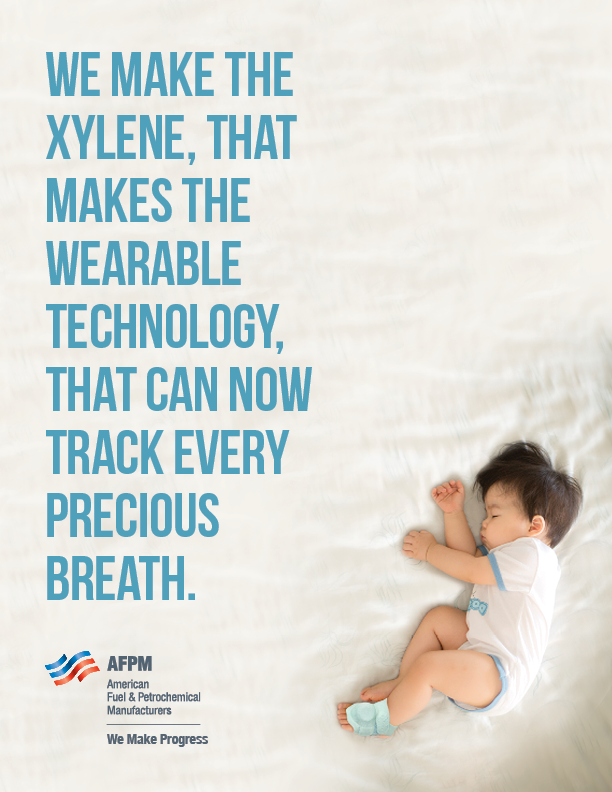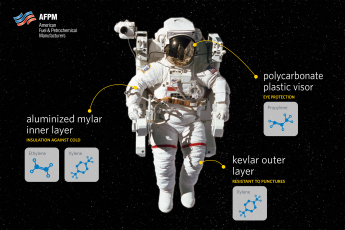From smartwatches to fitness trackers, wearable technologies help us optimize our lives. Features like sensor technology, flexible membranes and smart fabrics help track vital signs, movement, overall health and habits, and bring new aspects of our lives into focus. These products are made possible by petrochemicals, like the polymers that enable Stanford University’s BodyNet sensor — a thin, wireless “stretchable sticker” that flexes with one’s skin and beams health readings to a receiver.
Beyond tracking our own health, wearable technologies enabled by petrochemicals are also helping caretakers better monitor babies’ physiological signals. Bluetooth-ready “smart socks” can record an infant’s heart rate, oxygen levels and sleep patterns and send updates to parents through an app on their smartphones. The petrochemical xylene makes the polyimide wearable technology at the heart of these devices that help so many parents and caregivers rest easier when watching over a little one.
As the benefits of wearables become more widely recognized, the market for these technologies is growing. New devices that solve for a range of challenges are entering the market at a rapid pace, and shipments of health care wearables are slated to increase from 2.5 million units in 2016 to 97.6 million units annually by 2021, according to Mark Brinkerhoff of product and equipment development consultancy Fusion Design Inc.
Amid this increasing demand, American petrochemical manufacturers are proud to produce the chemical building blocks that make smart socks and so many other life-enhancing wearable technologies possible.

Learn more about how U.S. fuel and petrochemical manufacturers are making life easier, safer and more productive at www.WeMakeProgress.org.


